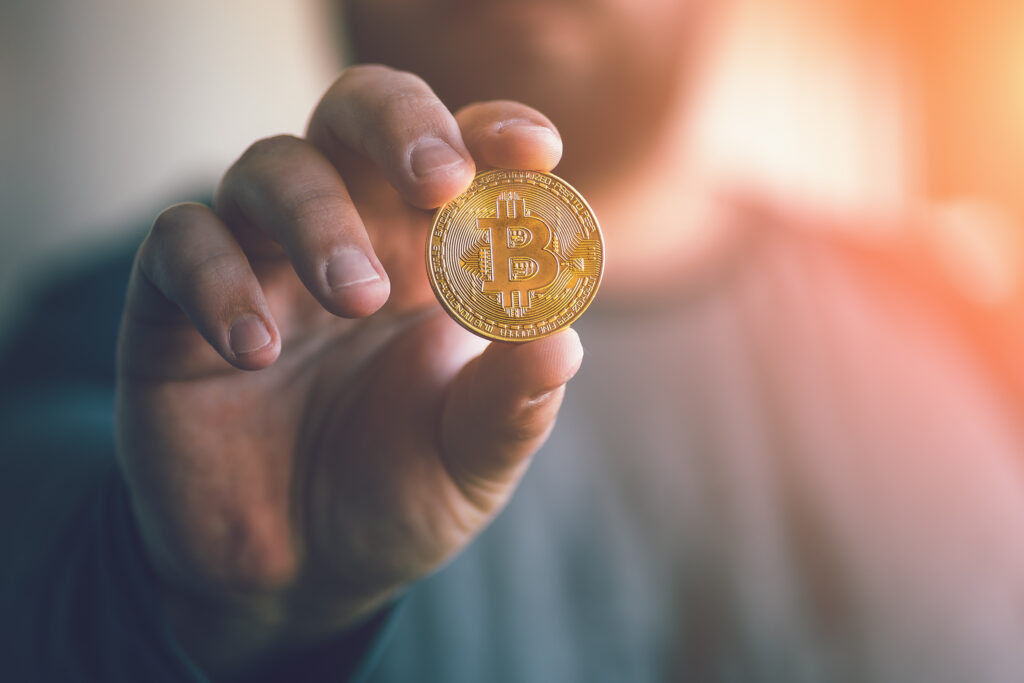
You've heard the term cryptocurrency before, but you don't have a concrete idea of what it means? Or are you already a little familiar with the subject and are thinking about the advantages and disadvantages of cryptocurrencies? In both cases, the following article will be informative for you.
As the name suggests, a cryptocurrency is a digital asset. Common synonyms are online currency or internet currency. This means that you can use it to make purchases, exchange, and trade on the Internet. However, with the exception of El Savador, most countries do not recognize cryptocurrencies as legal tender.
The asset write-ups are recorded in a so-called blockchain. This is a database, the special features of which we will discuss in more detail later. A complicated encryption technology is used to ensure the necessary security.
In summary, a cryptocurrency system must meet the following six characteristics:
The beginnings of cryptocurrencies date back to the 1980s. In 1983, the American cryptographer David Chaum published a conference report in which he discussed the concept of an anonymous electronic currency that is independent of a central authority (bank). Based on this idea, Chaum develops the prototype Digicash.
Three years later, computer scientist, legal scholar and cryptographer Nick Szabo develops Bit Cold, a direct predecessor of today's Bitcoin. The challenge at the time was to avoid the rather simple duplication of digital data. This still required a central authority, which, however, contradicted the actual intention of Chaum and Szabo.
It was not until 2008 that a solution was found: Satoshi Nakamoto - this is a pseudonym of a still unknown person - publishes a white paper entitled "Bitcoin - A Peer to Peer Electronic Cash System" in which he discusses how the Bitcoin blockchain network works. Shortly thereafter, Satoshi acquires the Bitcoin.org domain and develops the Bitcoin.
In the following years, the value of the Bitcoin increases continuously. In December 2017, it reaches a value of USD 20,000. In parallel, other cryptocurrencies such as Ethereum, Litecoin and Ripple come onto the market. However, due to multiple hacker attacks, cryptocurrencies increasingly lose value in 2018 and Trust on.
In 2020, Bitcoin experiences a renewed high, which is due to the announcement of a software manufacturer to acquire Bitcoins worth $250 million. However, after a short upswing, the price drops again.

Over 10,000 different crypto systems existed, but only a few of them are designed as currencies. Before we turn to the individual systems, it is useful to distinguish in advance between coins, altcoins and tokens.
Under a Coin is a cryptocurrency that has its own independent blockchain. All coins except for bitcoin are referred to as Altcoins is referred to as. The mode of operation is often - but not necessarily - similar.
With a Token is also a digital asset that can be bought and sold. The difference to coins is that a token does not have its own blockchain, but uses the infrastructure of a third-party blockchain. A frequently cited example in this context is Tether, which is hosted on the Ethereum blockchain.
Among the most popular and widely used cryptocurrencies are:
Previously, we discussed what is meant by cryptocurrencies. Below we would like to explain how they work.
The term "crypto" comes from the Greek and translates as "secret". Cryptography is therefore the secure exchange of data between two or more parties. The sender encrypts his message so that only the selected recipients can decrypt it. The message cannot be read by outsiders.
Cryptocurrencies use cryptographic methods to ensure secure and anonymous transactions that do not require an intermediary. In simple terms, this means that you have no knowledge of your transaction partner and vice versa. Third parties such as banks, authorities or credit card companies do not even come into play.
However, apart from anonymity, cryptography has another important value. To prevent Bitcoin owners from copying their money, the Public key encryption method for use.
A blockchain is a digital data community record. A history not only shows each unit of a cryptocurrency, but also how ownership changes. As the name suggests, a blockchain stores transactions in so-called blocks, with new blocks always listed at the beginning.
In addition, blockchain technology differs significantly from traditional computer files in another way. A blockchain file is never stored at just one location, but on many computers throughout the network. Thus, access is available to all users of the respective network. The latter is not only practical, but also protects against hacker attacks and system errors.
Another building block of the blockchain is cryptography. The individual blocks are linked together using a cryptographic encryption process. If someone tries to rewrite data without authorization, the links between the individual blocks are cut. In this way, attempts at fraud can be effectively prevented.
Anyone who deals with the topic of cryptocurrencies will inevitably become aware of the term mining. This refers to the "mining" (generation) of new Bitcoins. The latter works via so-called miners, who add a new block to the Bitcoin blockchain and are credited with a reward - the so-called block reward.
Bitcoin miners use special hardware and software. In this way, the verification of duplicates or faulty transactions is avoided. Basically, the higher the number of Bitcoin miners, the more secure and decentralized the network.
The Proof of Work (PoW) consensus method is used to generate new Bitcoin. As already described, Bitcoin miners provide their computing power to generate new coins. This in turn increases the security of the network, for which the miners receive a reward in the form of Bitcoin. Put simply, it is a give and take.
Cryptocurrencies are a speculative asset. Consequently, the investment can be fraught with risks. This is even more true if you do not know what to look out for.
Before you invest in cryptocurrencies, you first need to find the right trading platform. In technical terminology, we talk about crypto exchanges or dexes (decentralized exchanges). Here you can make direct purchases of cryptocurrencies. The best-known trading platform is Coinbase. An overview and a direct comparison of popular crypto exchanges can be found at here.
Once you have registered on a trading platform and verified your user account, you can make any purchase on the platform. Before that, your profile will be connected to a bank account.
Tip: For users within Germany, Fidor Bank offers a special current account that can be directly linked to a wallet for Bitcoins.
Once you have decided on an offer, you click on "buy". The platform then blocks the offer for other users. As soon as you have transferred the corresponding amount to the seller, the coins or tokens belong to you.
The units of cryptocurrencies (coins and tokens) are stored in so-called wallets. You can imagine these as a kind of digital wallet. Furthermore, a distinction is made between hot wallets and cold wallets.
The first are in app form on Internet-enabled devices and are encrypted by a long password. Due to their Internet connection, it would theoretically be possible for experienced hackers to hack a hot wallet.
With a cold wallet, on the other hand, things are different. The coins are not stored in an app, but on external data carriers. Unauthorized persons cannot gain access to the latter.

Worldwide, cryptocurrencies are used by several hundred million people. Especially in Germany, the acceptance has increased significantly compared to speculation with shares in recent years, as current surveys prove. With cryptocurrencies, transactions and investments of any size are possible.
Cryptocurrencies can be used for much more than just paying for goods and services. Below we have summarized five use cases that illustrate the future potential:
Again and again, one hears about fraud schemes and criminal activities in connection with cryptocurrencies. For example, the digital currency is used on online black markets. An anonymous digital currency is also self-explanatorily tempting for the handling and financing of drug deals, money laundering or terrorist organizations.
Nevertheless, the use of cryptocurrency for criminal activity accounts for only about 1 %, as shown in current studies ...that's what I'm talking about.
As far as common scams are concerned, you should become skeptical if you are promised exorbitantly high profits through the purchase of a crypto investment. A current warning, which provides further tips on how to behave, can be found at here.
Volatility means that the price is subject to strong fluctuations. This is undoubtedly the case with cryptocurrencies, which is why investments are generally considered to be very risky. You should always be aware of this.

